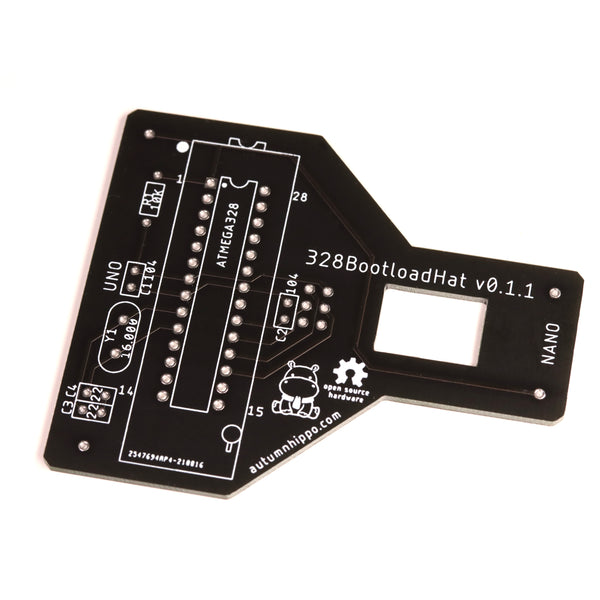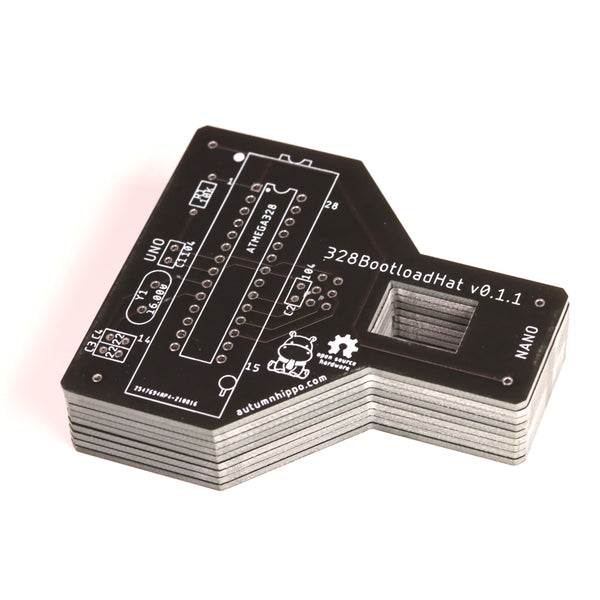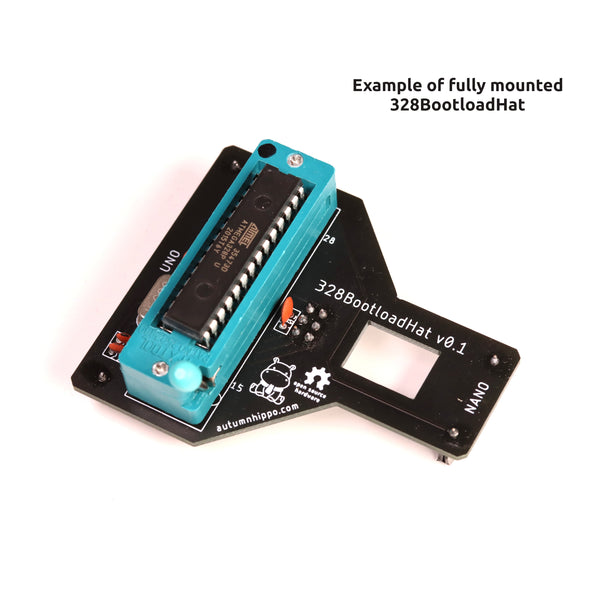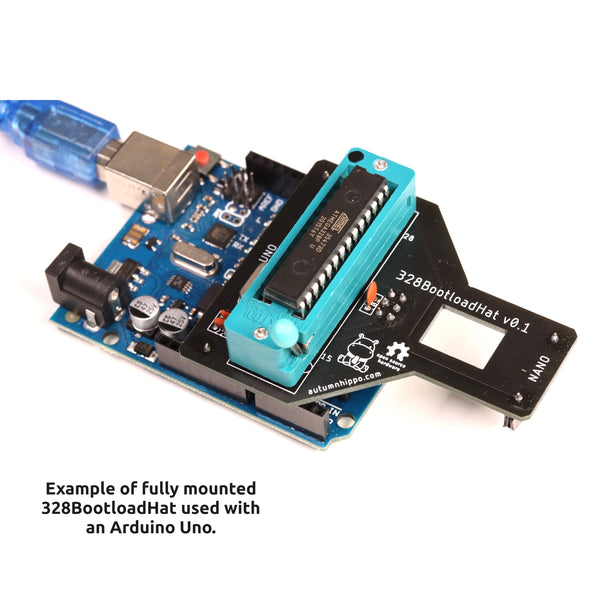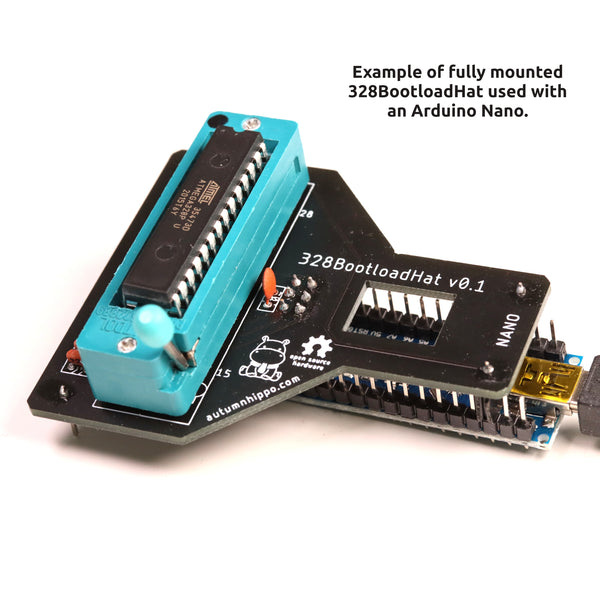328BootloadHat (PCB only)
Hat/shield to ease the process of burning an Arduino bootloader to an ATMega328 IC
If you google or search Youtube for instructions on how to burn an Arduino bootloader onto an ATMega328 chip, there are several ways to do it. Often it involves popping the chip off an Arduino Uno and/or setting up slightly complex breadboard circuits, which for some reason always end up having loose connections that often result in errors when burning the bootloader.
The 328BootloadHat works by the same principles, except much easier. It works as a hat/shield that you can simply mount on top of any Arduino Uno/Nano. If you equip it with a ZIF socket (zero-insertion-force), you are well off if you need to burn bootloaders onto more than a few chips at a time.
You don't need to dedicate your Arduino to this. When you're done, you can simply unplug the 328BootloadHat and use your Arduino for your other projects.
Please note, this will buy you the PCB only. You will need to source the following parts in addition, of which you should be able to get all from your local electronics store, or even places like Ebay:
- An Arduino Nano or Uno
- 1 x ZIF (zero-insertion-force) socket, 28 pins, narrow. Alternatively you can use a normal IC socket, but a ZIF socket is highly recommended.
- 2 x ceramic capacitor, 100 nF
- 2 x ceramic capacitor, 22 pF
- 1 x resistor, 10 KΩ
- 1 x Crystal oscillator, 16 MHz, pin pitch 4.88 mm
- pin header connectors, male and female dependant on whether your Arduino has one or the other, obviously needs to be the opposite. If you have 10 male and 10 female header pins, you have plenty in either case.
Please see the project webpage for assembly and usage instructions.
The 328BootloadHat has been released as Open Source hardware, so if you feel for it, you can get the source files and do your own changes, or get the gerber files and have the board printed yourself at your favourite PCB manufacturer.






